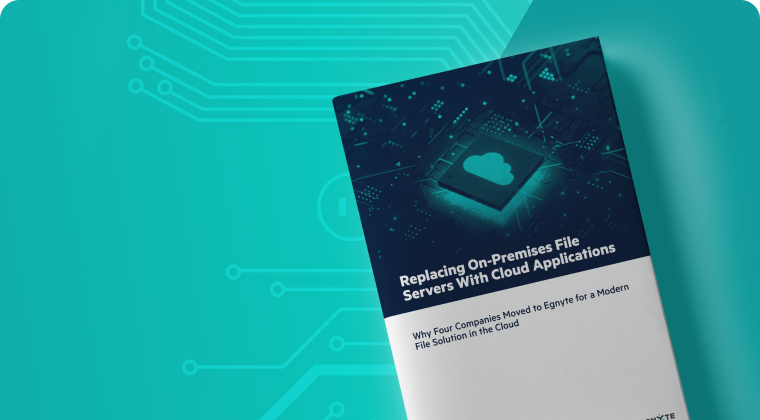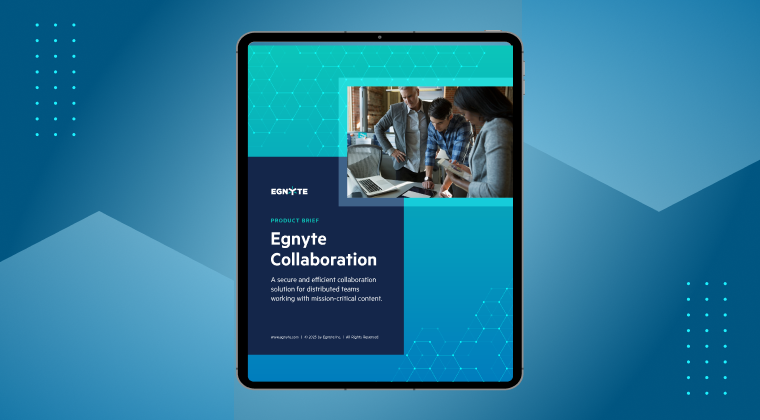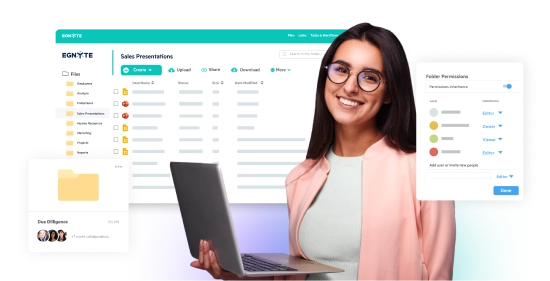
Secure Collaboration for Mission-Critical Content
Collaborate Efficiently
secure real-time collaboration in Egnyte,
saving time and reducing file version
issues.
Work With Complex Files
complex files in the cloud and efficiently
work with massive files.
Streamline Workflows
improve productivity, and drive project
momentum by executing all tasks
without leaving Egnyte.
Enable Secure, Efficient Collaboration
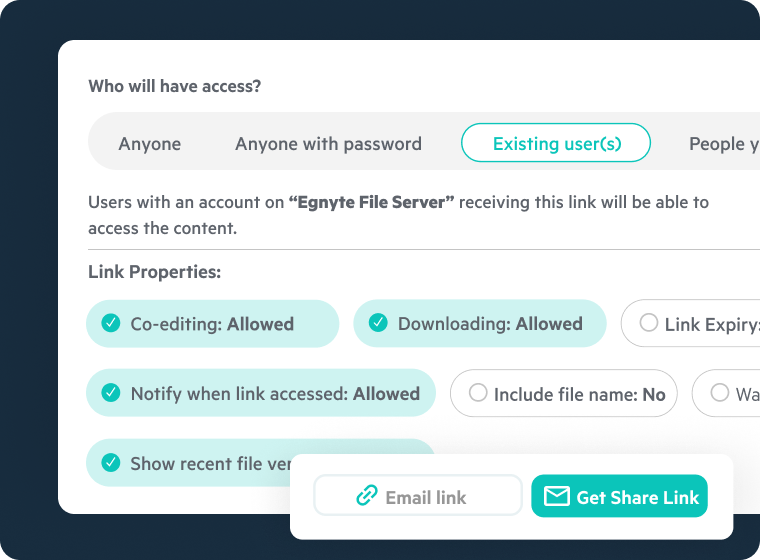
Secure Sharing and Co-Editing
- Co-edit content files in Google Workspace and Microsoft 365 on the desktop, in a browser, or on a mobile device
- Share critical content with internal and external teams without creating copies
- Control sensitive content with view-only permissions, password-protected links, dynamic watermarking, and other security tools
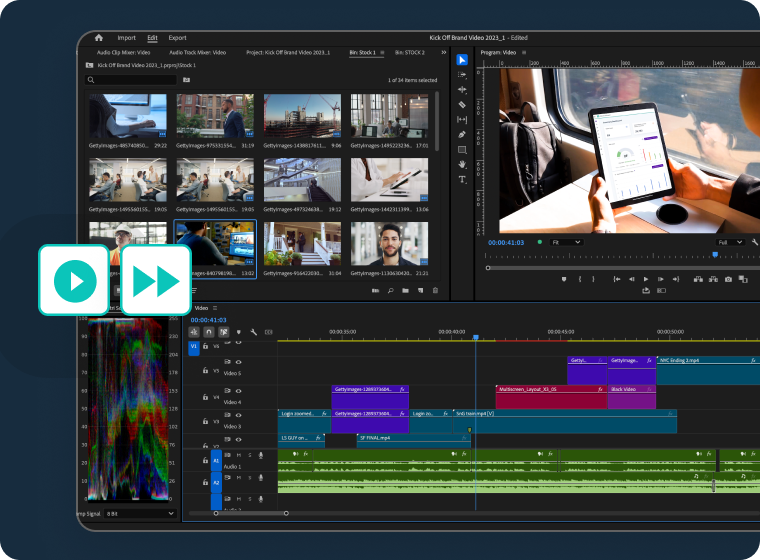
Massive File Handling
- Accelerate work on massive files in the cloud with edge caching, especially in low-bandwidth environments
- Leverage desktop caching while working from home or on the road
- Preview large files before downloading
- Prevent update conflicts in a multi-cache environment with global file locking
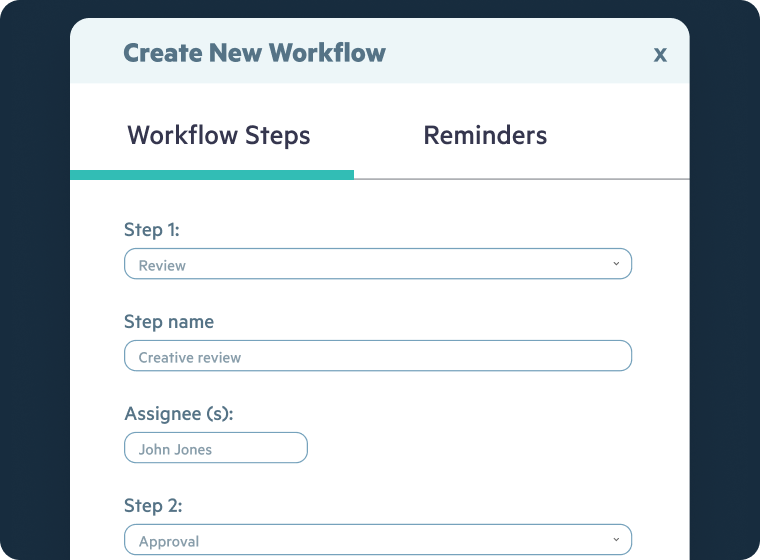
Workflow Automation
- Leverage AI to automatically trigger workflows
- Speed up document workflows by editing PDFs directly in Egnyte
- Capture e-signatures without moving files to another cloud
- Automate secure document collection, reducing reliance on email
- Access Egnyte content from your preferred business workflow applications such as Salesforce, Dynamics, Procore, or Practifi, minimizing workflow disruptions
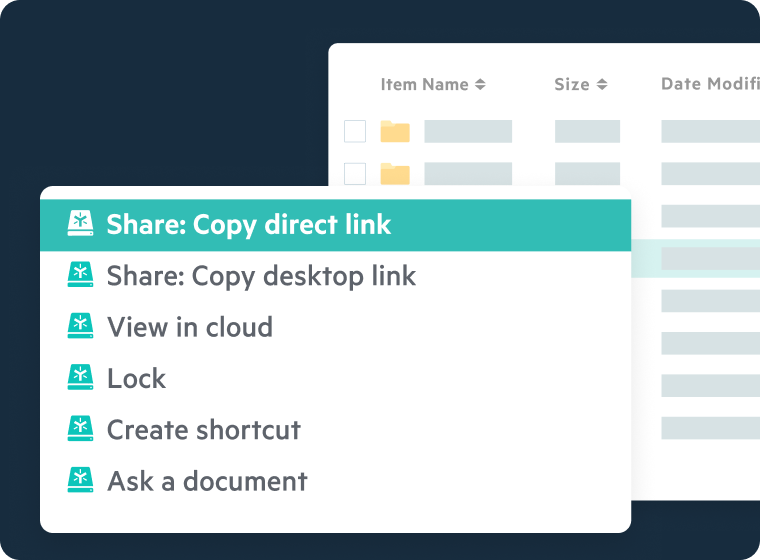
Desktop Experience
- Access Egnyte content and perform tasks directly from your desktop
- Collaborate on Egnyte cloud content using desktop authoring apps
- Navigate Egnyte via a mapped drive like a local drive or file server
- Securely access Egnyte in the cloud without a VPN
- Used certified applications like Autodesk, Adobe, Esri, and Bentley in the cloud
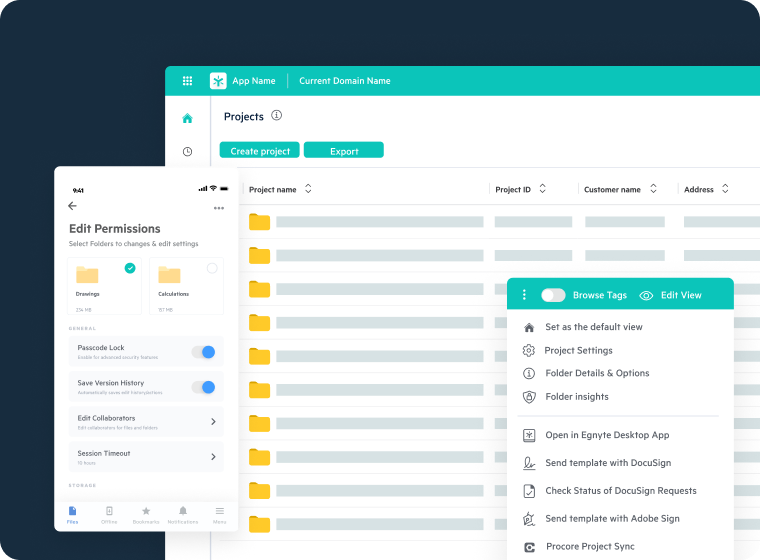
Streamlined Team Collaboration
- Centralize project folder creation and access with expanded data lifecycle management through Project Hub
- Work with design, planning, and field applications like Procore, Autodesk Construction Cloud, NewForma, Bentley, Bluebeam, and more
- Eliminate silos, reduce file confusion, and keep internal and external collaborators aligned from start to finish
Hear From Our Customers
See Egnyte's Secure Collaboration in Action
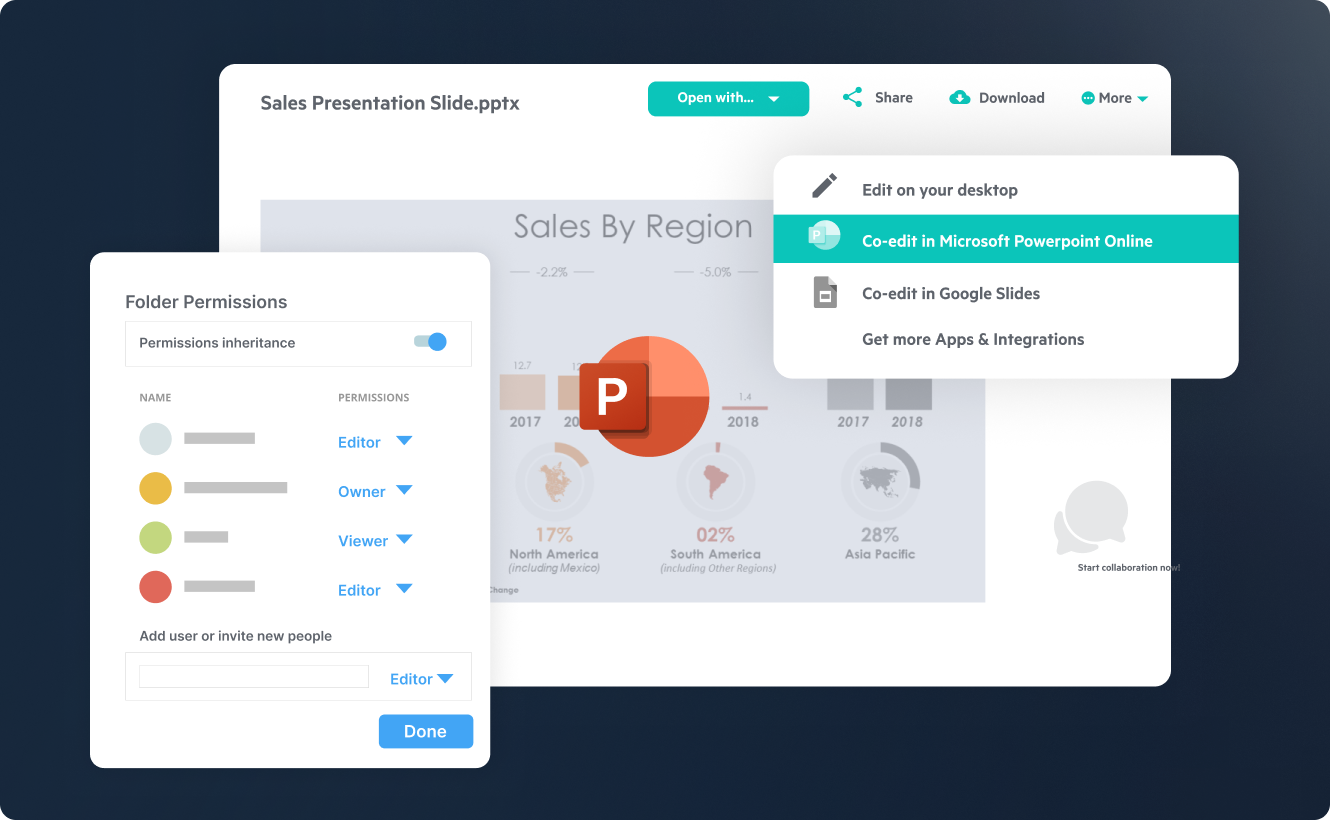
Learn how to increase productivity and strengthen collaboration when working on mission-critical content with Egnyte.
You Might Also be Interested In
FAQs
A secure file collaboration platform enables teams to share, edit, and manage files in real time while protecting data from unauthorized access. These platforms typically include encryption, access controls, permissions management, version tracking, and compliance support to ensure secure teamwork across devices and locations.
To enhance collaboration in hybrid or remote setups, businesses should use cloud-based tools that offer centralized file access, real-time co-authoring, key application integrations, and mobile support. Features like document versioning and permission-based sharing also help streamline workflows and maintain productivity.
Cloud-based collaboration tools provide benefits such as real-time editing, improved productivity, secure file access from any location, and reduced reliance on email attachments. They also make it easier to collaborate with external partners and manage access to sensitive files with full transparency and auditability.
Version control ensures that teams are always working on the latest document version, reduces friction caused by conflicting edits, and allows users to restore previous versions when needed. This is essential for maintaining document accuracy and auditability in collaborative environments.
To securely share files externally, companies should use collaboration platforms that offer encrypted links, revokable permissions, password protection, expiration dates, and role-based access. These controls help maintain data privacy and limit exposure to unauthorized users during external collaboration.
Essential features include secure file sharing, real-time co-editing, permission controls, version history, mobile access, offline sync, and integration with productivity tools like email, project management, or office suite apps. Scalability and ease of use are also important for adoption across teams.
Collaboration platforms help with security and compliance by offering encryption, access auditing, data residency options, and support for regulatory standards like GDPR, HIPAA, or ISO 27001. These tools reduce the risk of data breaches and support governance requirements for sensitive information.





